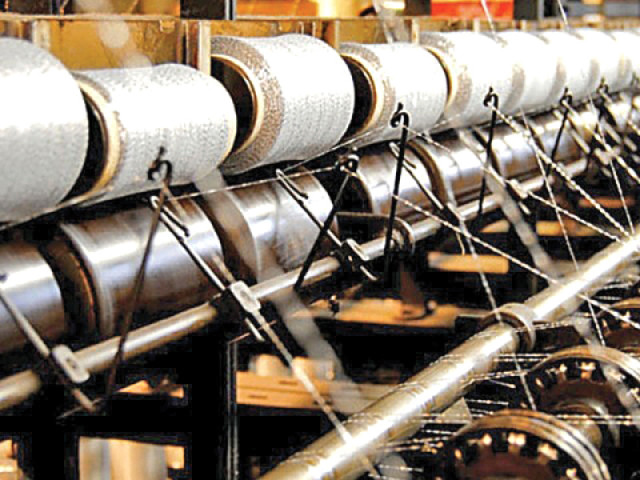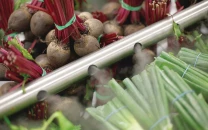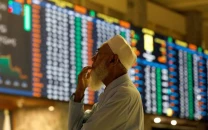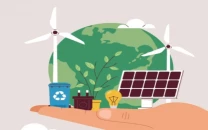Textile industry: Govt vows smooth energy supply to support exports
Preparing a textile package after grant of GSP Plus status.

the textile ministry had conducted a detailed study on the challenges dogging the sector and its results were in line with the issues raised by the textile association. PHOTO: FILE
Federal Minister of Textile Abbas Khan Afridi has acknowledged that the government has no choice but to ensure smooth gas and power supply to textile mills in an effort to help maintain the 15% growth in exports that the industry has been posting since January.
Speaking to members of the All Pakistan Textile Mills Association (Aptma) here on Saturday, he said the government was fully aware of the issues faced by the sector – top of them was gas and power supply – and it would resolve the matter immediately in consultation with the industries.

“Other issues like high cost of doing business will be addressed gradually as a textile package is being framed in the wake of new market access that the country has won through the GSP Plus status,” he said. “More markets in the south and north will be explored.”
Afridi announced that the textile ministry had conducted a detailed study on the challenges dogging the sector and its results were in line with the issues raised by the textile association.
The study would be shared soon with the stakeholders in a bid to frame a long-term textile policy, he said and expressed the hope that the industry would take exports beyond the $15-billion milestone in the current fiscal year.
Afridi termed the visit to Aptma office part of a regular strategy under which the ministry and industry met in order to improve the country’s economy.
Earlier, Aptma Central Chairman Yasin Siddik suggested that textile exports could be doubled with minor facilitation by the government. He said the industry desired a level-playing field and similar facilities as enjoyed by competing economies of the region.

Later in a statement, Aptma – the country’s most powerful business association – criticised the government for failing to do anything about the rising cost of doing business that had left its members uncompetitive in international markets.
“Due to inefficient and unfriendly socio-economic environment, the cost of operating a business is considerably high,” the statement quoted Siddik as saying.
The main factors adding to the cost were raw material, utilities, cost of finance, human resource, technology, infrastructure and supporting institutions, he said.
In Pakistan, the discount rate is 10% compared to 7.75% in Bangladesh, 8% in Sri Lanka and 9% in India and Vietnam. Similarly, per unit electricity tariff is $0.17 in Pakistan against $0.13 in India, $0.09 in Bangladesh and Sri Lanka and $0.073 in Vietnam.
“As of today, labour wage per hour is $0.51 in Pakistan, $0.20 in Bangladesh, $0.22 in Sri Lanka and $0.30 in Vietnam,” he said.
The logistics and transportation cost of exported commodities comes to around 15% of the cost of product against an average 8% in developed countries. “To keep Pakistani products competitive, it is essential to streamline the operating procedures so that delays and associated costs are minimised and timely deliveries are ensured,” he said.
“We cannot export inflation. To make the country’s exports compete with competitors in the region, the government has to take some very important decisions to give a boost to the industrial sector to reap the benefit of GSP Plus,” he said.
Aptma, which represents textile spinners, has come under increasing pressure in recent months to heap pressure on the government for stopping import of yarn from India.
Industry officials said many small spinning companies had suspended operations as their products were expensive than Indian threads.
Published in The Express Tribune, April 6th, 2014.
Like Business on Facebook, follow @TribuneBiz on Twitter to stay informed and join in the conversation.



















COMMENTS
Comments are moderated and generally will be posted if they are on-topic and not abusive.
For more information, please see our Comments FAQ